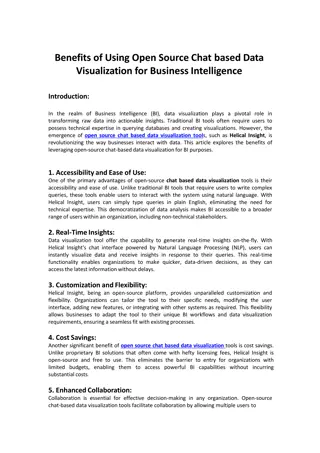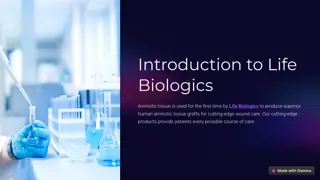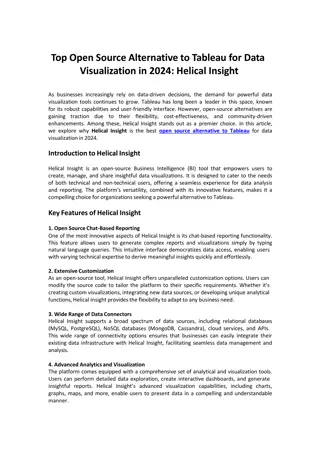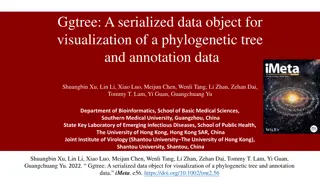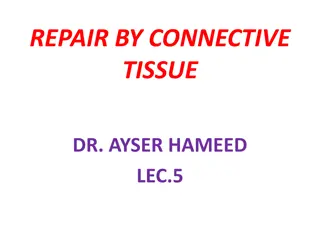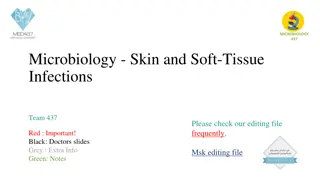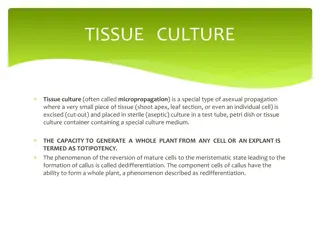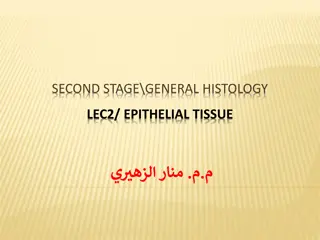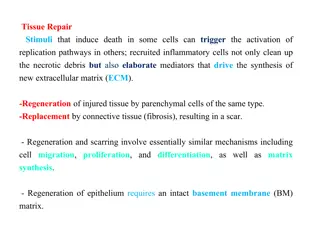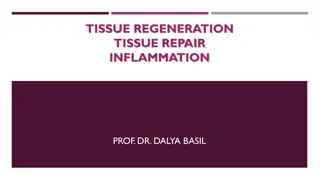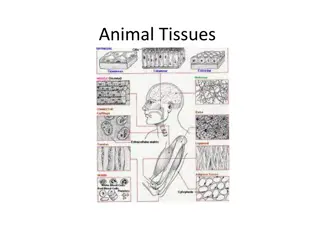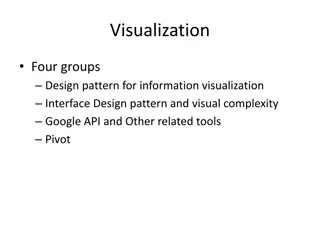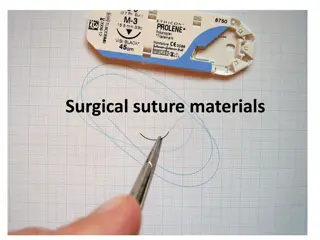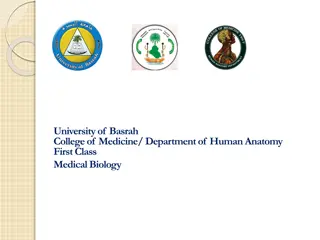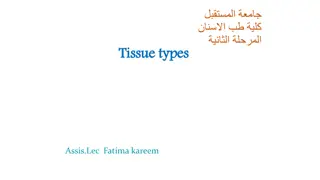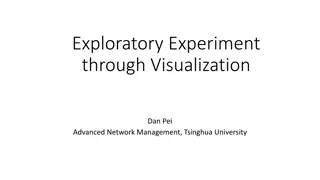Understanding Data Visualization with Matplotlib in Python
Matplotlib is a powerful Python package for data visualization, offering both an integrated interface (pyplot) and a native object-oriented interface. This tool enables users to create various types of plots and gives control over the visualization process. Learn about basic operations, differences
6 views • 19 slides
Open Source Chat Based Data Visualization With Helical Insight
Open Source Chat Based Data Visualization plays a pivotal role in modern business operations, enabling organizations to derive insights, make informed decisions, and drive growth. However, traditional visualization tools often come with high costs and steep learning curves, limiting accessibility an
1 views • 2 slides
Benefits of Open Source Chat-based Data Visualization
In the realm of Business Intelligence (BI), data visualization plays a pivotal role in transforming raw data into actionable insights. Traditional BI tools often require users to possess technical expertise in querying databases and creating visualizations. However, the emergence of open source chat
1 views • 2 slides
Advancing Healthcare: Potential of Advanced Amniotic Tissue by Life Biologics
Life Biologics is at the forefront of using amniotic tissue to develop premium human amniotic tissue grafts for advanced wound care. Our innovative products offer patients a comprehensive range of treatment options. Life Biologics' advanced skin substitutes provide a revolutionary solution for both
0 views • 5 slides
Open Source Alternative to Tableau for Data Visualization in 2024
As businesses increasingly rely on data-driven decisions, the demand for powerful data visualization tools continues to grow. Tableau has long been a leader in this space, known for its robust capabilities and user-friendly interface. However, open-source alternatives are gaining traction due to the
0 views • 2 slides
Exploring Symbolism and Connections in "Tissue" by Imtiaz Dharker
This analysis delves into the symbolism present in Imtiaz Dharker's poem "Tissue," drawing connections between paper, human skin, and architecture. The poem reflects on the fragility of human power through the metaphor of tissue and explores the intricate layers that make up an individual's identity
0 views • 23 slides
Understanding Plant Tissue Culture: Methods and Requirements
Plant tissue culture involves the in-vitro culture of plant explants under aseptic conditions, covering cell, organ, and suspension cultures. This process, pioneered by German botanist Gottlieb Haberlandt, relies on the totipotency of plant cells. Key requirements include laboratory organization, su
0 views • 18 slides
Reusing Phylogenetic Data for Enhanced Visualization and Analysis
Reusing phylogenetic data can revolutionize scientific research by enabling synthesis of knowledge and comparative analyses across scientific disciplines. However, a significant portion of valuable phylogenetic data is lost due to the prevalent use of static images for tree publication. To address t
0 views • 8 slides
Understanding Wind Tunnels: Devices for Aerodynamic Testing
Wind tunnels are devices that simulate air flows to test models under controlled conditions. They are classified as low-speed and high-speed tunnels, used to replicate flying or moving objects. Testing involves studying air motion using techniques like smoke visualization, colored threads, and speci
2 views • 37 slides
Understanding Repair by Connective Tissue in Healing Processes
Healing or repair by connective tissue occurs in response to severe or chronic tissue injuries, leading to the replacement of nonregenerated cells with connective tissue or scar formation. This process involves the induction of fibroblast and endothelial cell proliferation, granulation tissue format
3 views • 26 slides
Exploring Soft Skills Through Literature: A Path to Personal Development
Soft skills encompass a blend of personality traits, communication proficiency, and positive attitudes that set individuals apart. Originating in the US Army in 1972, soft skills include time management, teamwork, and confidence. Developing soft skills helps individuals excel in problem-solving, tea
0 views • 19 slides
Understanding Skin and Soft Tissue Infections: A Comprehensive Overview
Skin and soft tissue infections are common and can vary in severity. Recognizing the types, causes, and treatment options is crucial. Learn about the anatomical structure, bacterial involvement, diagnostic procedures, and management approaches in this detailed guide.
3 views • 20 slides
Interactive Plotting with ggplot and Shiny: Enhancing Galaxy Visualization Tools
Explore the concept of transforming existing ggplot2 Galaxy tools into interactive platforms using Shiny or Plotly implementations. Discover a variety of plot types available with ggplot2, such as barplots, violin plots, PCA plots, and heatmaps. Utilize additional plot options through various geom_*
2 views • 9 slides
Enhancing Soft Skills: Learning Objectives, Quizzes, and Discussions
Explore the world of soft skills with defined objectives, quizzes, and engaging discussions. Learn to identify, evaluate, and rate soft skills through practical scenarios. Enhance your communication, problem-solving, and interpersonal skills in various workplace situations. Dive into self-improvemen
0 views • 13 slides
EEG Conformer: Convolutional Transformer for EEG Decoding and Visualization
This study introduces the EEG Conformer, a Convolutional Transformer model designed for EEG decoding and visualization. The research presents a cutting-edge approach in neural systems and rehabilitation engineering, offering advancements in EEG analysis techniques. By combining convolutional neural
1 views • 6 slides
Understanding H&E Staining in Histology
H&E staining, a widely used histological technique, involves staining cell nuclei blue and cytoplasmic components pink to aid in tissue structure analysis. This method provides essential insights into normal and pathological tissue changes, assisting in diagnoses and further testing decisions. The p
0 views • 7 slides
Understanding Plant Tissue Culture: Techniques and Applications
Plant tissue culture involves maintaining and growing plant cells, tissues, or organs in artificial mediums under controlled conditions. It allows the regeneration of whole plants from small plant parts or cells. Hormones like auxins, cytokinins, and gibberellins are used in the process. Proper envi
3 views • 5 slides
Soft Heap and Soft Sequence Heaps: Properties and Applications
Explore the properties and applications of Soft Heap and Soft Sequence Heaps, discussing how corruption handling and selection functions are optimized in these data structures. The concept of car-pooling and the simplification of heap operations are highlighted, along with references to relevant res
1 views • 10 slides
Understanding Tissue Culture and Explant Selection in Plant Micropropagation
Tissue culture, or micropropagation, involves propagating plants from small tissue pieces in sterile culture. The process of dedifferentiation and redifferentiation allows for the regeneration of whole plants from individual cells or explants. Explants, selected from meristematic tissue, develop cal
0 views • 47 slides
Understanding Epithelial Tissue in General Histology
Epithelial tissue is a crucial type of tissue in the human body, performing functions like protection, absorption, secretion, and sensation detection. This tissue is composed of cells with minimal extracellular matrix and plays a vital role in various bodily processes. Learn about the classification
0 views • 47 slides
Understanding Tissue Repair Mechanisms: Regeneration and Fibrosis
Tissue repair involves complex mechanisms like regeneration by parenchymal cells or fibrosis leading to scar formation. Inflammatory cells play a crucial role in tissue repair, along with processes like ECM synthesis and cell migration. Different types of cells in the body have varying regenerative
0 views • 20 slides
Tissue Regeneration, Repair, and Inflammation Explained
Tissue regeneration and repair processes involve either regeneration of cells or connective tissue repair, depending on the type of cells injured. In cases where regeneration is not possible, healing occurs through the formation of scar tissue. The healing process aims to restore the structural cont
0 views • 40 slides
Understanding Tissue Repair: Regeneration and Fibrosis Mechanisms
Tissue repair involves two primary mechanisms: regeneration, where some tissues can replace damaged cells, and fibrosis, where scar tissue forms if regeneration is not possible. Cell proliferation, growth factors, and cell population control play key roles in the restoration of tissue architecture a
0 views • 15 slides
Understanding the Human Tissue Act 2004 and DNA Analysis
The Human Tissue Act 2004 regulates the removal, storage, and use of tissue and organs from both living and deceased individuals in England, Wales, and Northern Ireland. The Human Tissue Authority (HTA) oversees the implementation of this act, ensuring safe and ethical use of human tissue. Consent i
0 views • 20 slides
Understanding Animal Tissues: Epithelial, Muscle, Nerve, and Connective Tissues
Explore the four general categories of animal tissue - epithelial, muscle, nerve, and connective tissues. Learn about the traits, classification, examples, and functions of each type of tissue. From the tightly packed cells of epithelial tissue to the excitable nature of muscle tissue, delve into th
1 views • 22 slides
Understanding the Principles of Staining in Histopathology
Staining is a crucial technique in histopathology that involves adding specific dyes to biological substrates to visualize and differentiate cell and tissue components. This chapter covers the principles of staining, types of stains used, factors influencing staining affinity, and common stains empl
0 views • 43 slides
Software Design Patterns for Information Visualization
Explore design patterns for information visualization interfaces, understand the complexities, and leverage tools like Google API. Learn about different software design patterns, categories of patterns for information visualization, and the relationships between them. Discover the reference model fo
0 views • 27 slides
Overview of Immunohistochemistry (IHC) in Diagnostic and Research Laboratories
Immunohistochemistry (IHC) is a technique used to detect antigens in tissue sections by utilizing antibodies that bind specifically to target antigens. This method has evolved since the 1930s and plays a vital role in disease diagnosis, drug development, and biological research. IHC combines anatomi
0 views • 19 slides
Soft Skills Training Program Evaluation at an Indian Garment Firm
This study evaluates the impact of the P.A.C.E. program, focusing on soft skills training at an Indian ready-made garments firm. The research explores the inculcation and productivity-enhancing effects of soft skills in the workplace, questioning the profitability of general training provided by fir
0 views • 29 slides
Understanding Surgical Suture Materials and Techniques
Surgical sutures play a crucial role in wound repair by providing support and hemostasis to healing tissue. An ideal suture should meet specific criteria for handling, reaction in tissue, bacterial growth inhibition, knot security, and more. Factors like suture size, flexibility, and surface charact
0 views • 24 slides
Understanding Different Types of Fractures and Their Characteristics
Explore various types of fractures such as traumatic, pathologic, compressive, and more through detailed medical images and authentic reports. Learn about the severity of soft tissue damage, classifications by renowned professionals, and the significance of assessing soft tissue injuries. Delve deep
0 views • 28 slides
Understanding Fuzzy Soft Set Approach to Decision Making Problems
Real-life problems often involve imprecise data, requiring mathematical principles like fuzzy set theory. Dr. V. Anusuya explores the application of fuzzy soft sets in decision making scenarios, discussing their role in handling uncertainties and approximations. The introduction covers various theor
0 views • 16 slides
Understanding Birth Injuries in Newborns
Birth injuries in newborns can result from various factors during the birthing process, such as soft tissue injuries and head trauma. Soft tissue injuries like facial abrasions and scleral hemorrhage may occur due to causes like dystocia and forceps delivery. Nursing care involves assessing and reas
0 views • 19 slides
Understanding Common Sports Injuries by Dr. Ashish Kumar Dubey
Dr. Ashish Kumar Dubey, Assistant Professor in the Department of Physical Education, categorizes common sports injuries into soft tissue injuries, bone injuries, and joint injuries. Soft tissue injuries include sprains, strains, contusions, abrasions, lacerations, and incisions. Sprains are ligament
0 views • 7 slides
Interactive Data Visualization Tools and Techniques Quiz
This quiz tests knowledge on data visualization tools, techniques, and concepts. Questions cover topics such as the use of EDA in data visualization, interactive graph outputs, historical figures in data visualization, GIS data types in SAS/JMP, outlier detection in 3D scatterplots, and limitations
0 views • 11 slides
Understanding Epithelial Tissue in Human Anatomy: A Comprehensive Overview
Epithelial tissue is a vital component of the human body, serving as a protective barrier and interface with the external environment. This tissue type, along with other essential tissues, plays a crucial role in the development and function of organs. Learn about the structure, function, and signif
0 views • 22 slides
Understanding Basic Histology and Tissue Types
Explore histology, tissues, and types of tissues including epithelial, connective, muscle, and nerve tissues. Learn about tissue characteristics, differences, and functions, as well as details on specific tissue types like cardiac muscle, bone tissue, skeletal muscle, and smooth muscle. Delve into e
0 views • 74 slides
Regulation of Human Tissue and DNA Analysis under HTA 2004
The Human Tissue Act 2004 regulates the removal, storage, and use of tissues from deceased and living individuals. The Human Tissue Authority oversees the implementation of this act and provides guidance on safe and ethical use of human tissue. The act covers bodily and relevant material and emphasi
0 views • 20 slides
Understanding the Four Basic Types of Tissue
Explore the four basic types of tissue in the human body: connective tissue, epithelial tissue, muscle tissue, and nervous tissue. Learn about their functions and characteristics to gain a deeper understanding of the body's structure and functions after a lecture session.
0 views • 7 slides
Importance of Data Visualization in Network Management
Data visualization plays a crucial role in understanding and extracting value from data, especially in the realm of network management. Visualization techniques enable better decision-making, pattern recognition, and storytelling with data. By exploring data through visualization tools, one can unco
0 views • 26 slides


